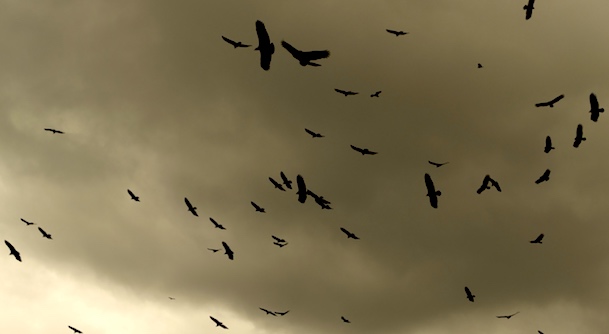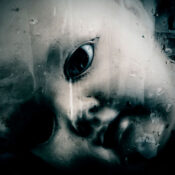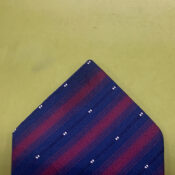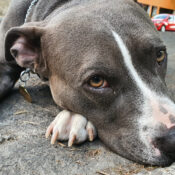I found the body on a morning in April. It was early and the sun had just started to rise. Against the gray sky, vultures flew high above the stump of the tree where the corpse and guitar rested. It wasn’t a good sign to wake up to so many buzzards out in the field. I thought the man might’ve been my father. I decided to make sure, and trudged through the snow toward the stump.
What remained of the old man was thawing out like everything else. What brought the buzzards must’ve been the smell. It would’ve gotten much worse if I’d found the body later. If he’d died on someone else’s property, someone who’d retired to Bovina rather than grew up there — which he had about a 50-50 chance of doing — everyone in town would’ve heard about it. And because of the guitar, everyone would’ve thought it was my father, and they would’ve come and asked questions, and my mother would’ve been livid.
More than anything in the world, my mother hated questions. Maybe she had too many voices in her head already questioning things. To hear her own questions echoed by others might’ve given them an existence she wasn’t willing to face. In this case, it might’ve been that she didn’t want to answer over and over again, “No, it wasn’t him. He’s off dead somewhere else. This was a different old fool with a guitar.” Then she’d have to confront the possibility that he really was dead.
My father was 71 when he took off on his motorcycle on his yearly road trip across the country to various Halls of Fame. He took his guitar with him. That was almost a year ago. But it wasn’t the same guitar out in the field, and it wasn’t the same man. I would’ve recognized the guitar.
After the body was taken away, my mother tried to get rid of the guitar as well. I told her I wanted it. “The vultures were still flying over it after the body was taken,” she said. “You know that means something, Davie.” I said she was being superstitious. But I knew what she was picturing: my father on the side of a long, desolate highway, his big Harley on top of him, and some young, naive kid coming along and taking his guitar.
“He died on our property, Ma. And you can’t steal from a dead man. Soon as he died, it became the vultures’ guitar.”
“That’s what I’m saying. What’re you planning to do with a vulture’s guitar, Davie?”
“I’m gonna play it.”
When I was a kid my father would sit on the front porch and play guitar for hours. It was his place, the porch, noticeably different from the rest of the house because my mother refused to sweep it. If he wanted it swept, he’d have to do it himself. He never did. Needlepoint tips of newly cut grass lay strewn about on the porch in spring; the carcasses of dead bugs were left forlorn in summer; in autumn it was the mud from his boots; and snow, slush, and spiders made their home there in the wintertime. None of it mattered to him. The only difference any of it made for him was in the summer the strings on the guitar went flat, and in the winter they went sharp.
That November, the Fosters had their annual town-wide party. Despite my mother’s protests, I took the guitar. Everyone in town was there: the Farmingdales, the Mackeys, the Deweys, the Smiths, the Skalskis, the Jacobsons, the retired Pelz couple, the retired Goldberg couple, the retired Perrin couple, and so many dogs you never saw the same one twice. The party started in the evening. As usual, people arrived a little early. Everyone dressed warm. The air was decorated with thousands of white Christmas lights. The children lit sparklers.
The Perrin couple brought their granddaughter who was visiting from the city. She barely spoke to anyone, and I could tell she thought the place was something of a ghost town. And while that wasn’t true, it wasn’t exactly wrong either. Nothing ever changed in Bovina. People came and people went, and in some cases they never returned, but that was about it. About an hour into the party I played a song on the dead man’s guitar and afterward tried to talk to the girl. But I’d inherited too much of my mother’s reticence. After introducing myself, I didn’t have much else to say. Like everything else in that town, I was something that hadn’t changed in a long time.
Some two or three hours later, after night had fallen and darkness swept over everything beyond the reach of the Christmas lights, we heard the roar of an engine. Everyone turned their heads as the noise got louder; headlights started to appear on the road in front of the house. I looked to my mother and saw her mouth working, her jaw clenching, small incoherent mutterings gargling from the back of her throat. The engine sounded like a Harley.
The driver stopped in front of the Fosters’ house and parked his motorcycle. He took off his helmet and carried it with him as he started toward us. Strapped over his shoulders was a long, hard guitar case. I recognized the case.
“An old man I thought was you died out in the field earlier this year,” my mother said to him. “Last winter.”
“Thought, or hoped?”
She ignored him. “Died right there next to the stump of that tree Davie felled before you left. Died beside his guitar, which is something I thought you’d be stupid enough to do.” She paused. “Davie still has the guitar.”
My father turned to me. “What’s wrong with you?” he asked. “You should’ve left it there. Or burned it. A man dies with his guitar, it’s because he wants that guitar to die with him. You know I can make you a guitar.”
“I didn’t know you’d be back,” I said.
It snowed that night — the first snow of the season.
The next morning, before the sun rose, I took the guitar out into the field. The snow from the night before had melted and the ground was still cold and wet. I leaned the guitar against the stump, lit a match, and dropped it inside the sound hole. It didn’t light. I wasted three more matches like this before going to the shed and getting the can of gasoline.
As it started to burn, a turkey vulture landed some 30 yards off where the field met the woods. Another one landed beside it and then a third flew down, landing beside the first two and bringing in its enormous black wings. They watched as the fire began to engulf the guitar. I wondered if you could see the flames reflected in their eyes. It seemed possible that you couldn’t, and that scared me. When the guitar finally burst into flames, I went back inside.
For a few nights after that I thought I heard the guitar being played out in the field. I had the foolish thought that it was the vultures, that they were out there playing it, somehow. But it was just my father on the porch. Soon enough the mud and slush and spiderwebs returned. I reminded him over and over to make me that guitar. He did, eventually. It was a pretty, dark little thing.
Become a Saturday Evening Post member and enjoy unlimited access. Subscribe now




Comments
Good story.